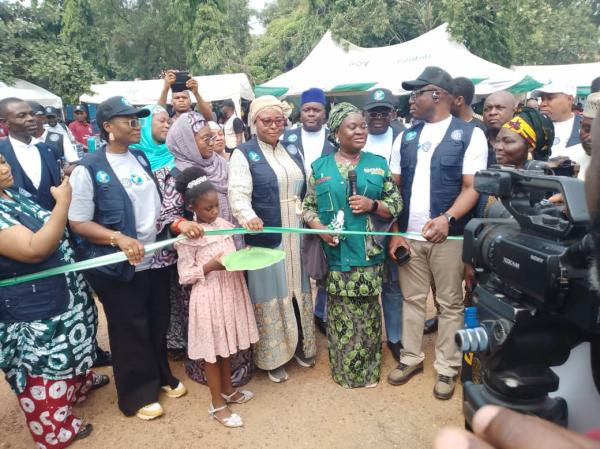
Abia State Governor, Alex Otti, has increased the monthly allowance for National Youth Service Corps (NYSC) members serving in the state from ₦4,000 to ₦50,000.
According to a statement by Ukoha Njoku Ukoha, the Chief Press Secretary to the Governor, the new arrangement provides a flat monthly allowance of ₦20,000 for all Corps members. Those serving in state government establishments receive an additional ₦10,000, while Teaching and Medical personnel benefit from an extra ₦30,000.
With the Federal Government’s enhanced NYSC allowance of ₦77,000, Corps members serving in Abia now take home an average of ₦90,000 monthly.
The statement disclosed that the move aims to motivate Corps members and “bridge the human capacity gap created by decades of neglect and attrition in critical sectors.”
“This marks the first major adjustment after 27 years, reflecting Governor Otti’s commitment to youth empowerment and workforce development in Abia,” the statement said.
It also emphasized other initiatives to improve the NYSC experience in the state, including renovations of the NYSC Orientation Camp in Bende Local Government Area, upgrades to infrastructure, road repairs within the camp, and installation of power equipment.
“Although NYSC camps are federal facilities, Governor Otti believes every institution in Abia deserves attention, as Abians benefit the most,” the statement outlined.
The Governor’s administration stated that Corps members play a vital role in the state’s development, especially in sectors like Law, Engineering, Medicine, and Education. The statement cited Mr. Benson Ojeikere, a former Corps member from Edo State who was retained after his service year and rose to become Abia’s Head of Service, as an example of the benefits of merit-based appointments.
Furthermore, Governor Otti has approved the implementation of the Consolidated Health Salary Structure (CONHESS) for health workers across Abia, including Local Government Areas, to align salaries with federal standards and boost workforce morale.
The statement concluded that these measures are part of a broader strategy to strengthen institutional capacity in healthcare and education, with 35% of the state’s budget dedicated to these sectors, ensuring a well-equipped and future-ready public service infrastructure.






















